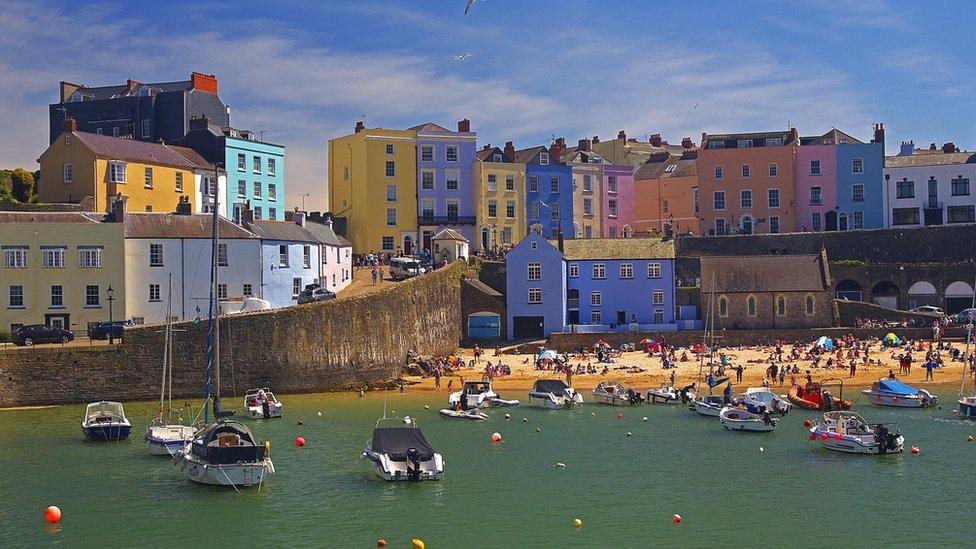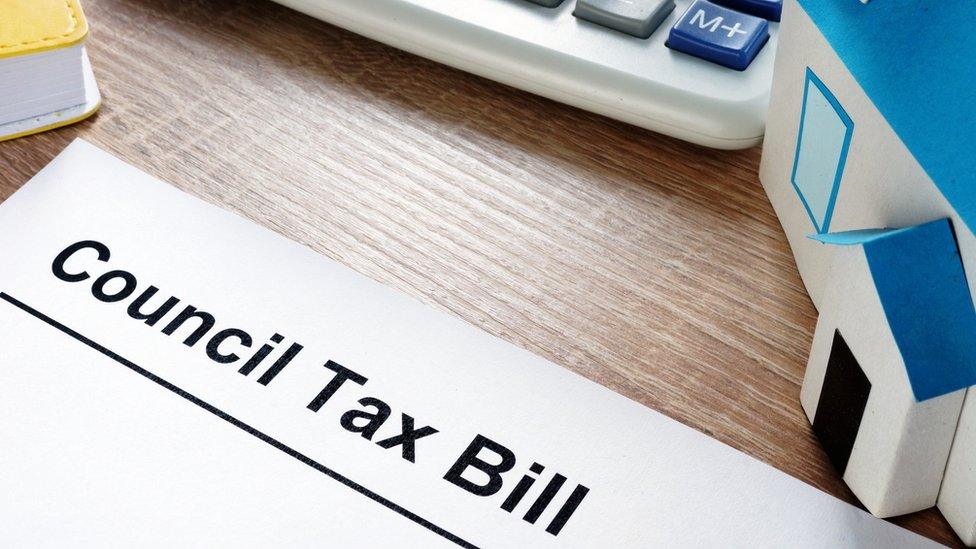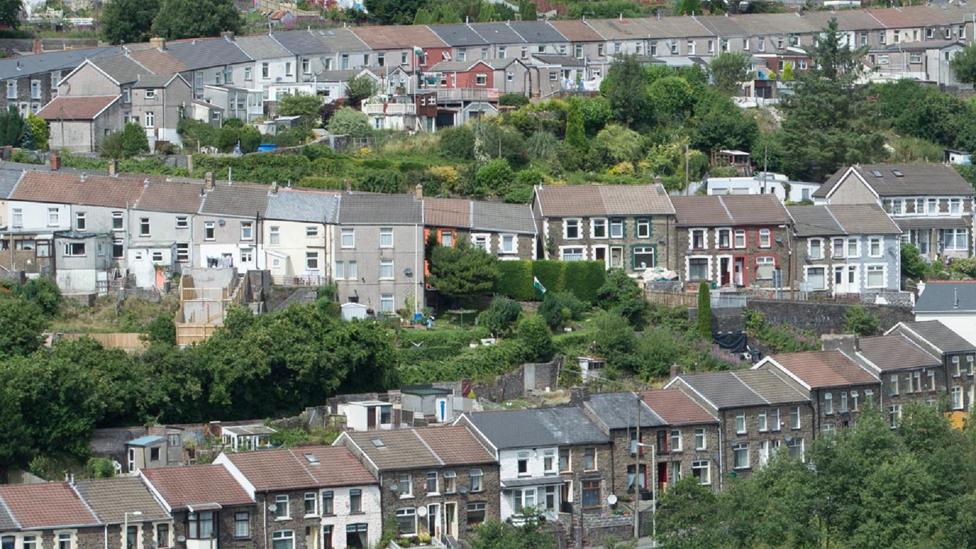Pembrokeshire residents face record 21% council tax hike
- Published
- comments

Pembrokeshire council is proposing council tax bill hikes of between 16% and 21%
A local authority has proposed the highest ever percentage rise seen in council tax in Wales.
Pembrokeshire, which had historically kept its council tax low, has proposed rises between 16% and 21%.
The council said it was facing the "most challenging financial situation" since its creation.
It comes as the Welsh government said it plans to funnel an extra £25m from the UK government into the local government sector.
It is a tiny addition to the Welsh government's overall budget of £5.7bn for councils.
Local authority leaders have been warning of cuts since late last year. Although councils are among the few public sector bodies actually receiving more funds this year, rises vary between councils and several do not meet the current rate that costs are increasing.
Council leaders, whose authorities fund social care, schools and refuse collections, say cuts to grants and agreements on teachers' pay leave them with gaps in their budgets.
Pembrokeshire is currently run by a coalition of unaffiliated councillors, as well as Labour, Plaid and Liberal Democrats members.
The council had the lowest band D council tax in Wales for the current financial year, at £1,342.86.
Raising bills to 21% is one of three possible options the authority is looking at - equivalent to £5.40 a week.
That would still involve cuts - the loss of 19 staff, closure of two older person day centres, reduced library opening hours and an increase in fees and charges.
A second option would see a 18.94% rise, working out at an extra £4.88 for a band D property.

A rise of 21% could see residents charged an extra £5.40 a week
But that would see additional reductions including reduced highway maintenance, the closure of two learning disability day centres, closure of St David's waste and recycling centre, a reduction in music and sport budgets in Pembrokeshire and a loss of a further 13 staff.
The smallest increase - 16.31% or £4.20 a week - would see the greatest cuts, including an additional 1% cut to schools budgets, a move to bin collections happening every four weeks, and a complete closure of older persons day centres. Another 15 support service jobs would be closed.
Anything less than 16.3% is not financially sustainable, a report to the council's cabinet said.
Members of the Pembrokeshire cabinet will be asked on Monday to consider which of the three options to propose to the authority's full council.
Pembrokeshire's largest rise in the past was 12.5%.
Pembrokeshire council said there were "unprecedented inflationary and demand pressures on the council for 2024-25" and that it had projected a funding gap of more than £31m.
A spokesperson added: "Even after utilising funding from council tax premiums of £6m and budget savings of £9m-£12m, the council will need to generate between £12m-£15m from a council tax increase to balance its budget, this being the reason for the council tax options proposed."
It is not expected that the Welsh government will use its powers to cap council tax.
The Welsh government, which provides most council funding, said: "The UK government has not provided an adequate funding settlement for Wales and our budget next year is worth £1.3bn less than at the time it was set, as a result of inflation.
"While we've had to take some really difficult decisions to radically reshape our budget, we are protecting the core local government settlement by providing the 3.1% increase to local authorities promised last year, with a total annual core funding contribution of £5.7bn."
Extra funds for councils
Meanwhile on Wednesday, Finance and Local Government Minister Rebecca Evans announced extra funds for councils.
Plans to increase council funding in England by £500m will likely result in an extra £25m for the Welsh government. It can spend that money how it likes, but has been under pressure from councils and politicians to put it into local government.
Most of the money - £14.4m - will be allocated to the council's core funding. A detailed breakdown of which authorities would benefit was not available immediately on Wednesday, but Ms Evans said no individual authority would see an increase lower than 2.3%.
That likely means that at least Gwynedd and Conwy will see their funding increased slightly - both faced increases in their revenue support grants of just 2%.
The rest of the cash will be used to be put into a social care grant, Ms Evans said.
Sam Rowlands, Conservative shadow minister for local government, welcomed the move: "Councils in Wales are struggling to make ends meet because of the Welsh Government's stale funding formula, so it was imperative that new cash announced by the UK government found its way in to local authority budgets."
Plaid Cymru's spokesperson for local government Peredur Owen Griffiths said it was right the cash was being used to fund councils but said "£25m will do very little in easing the pressures on the delivery of local services".


Related topics
- Published24 January 2024

- Published24 January 2024

- Published20 December 2023
